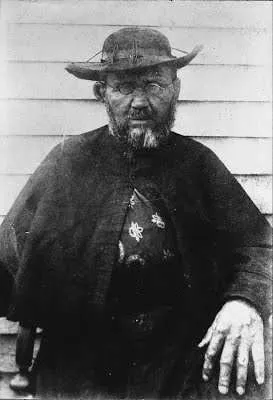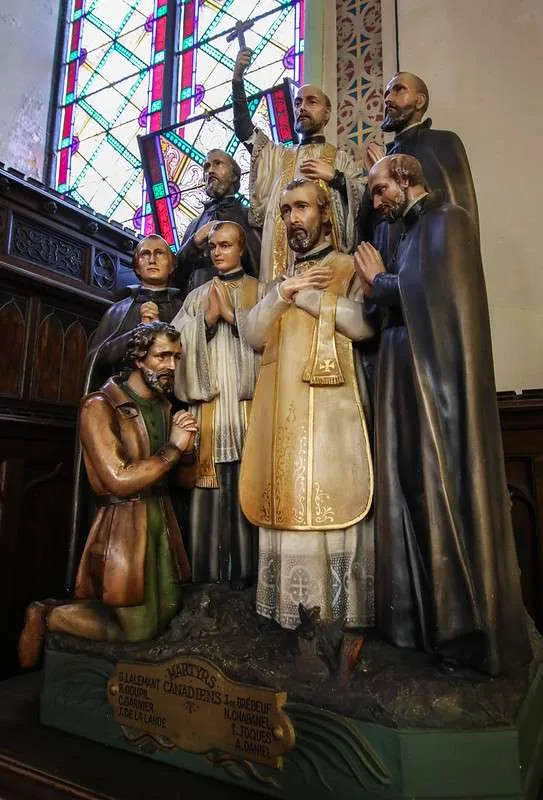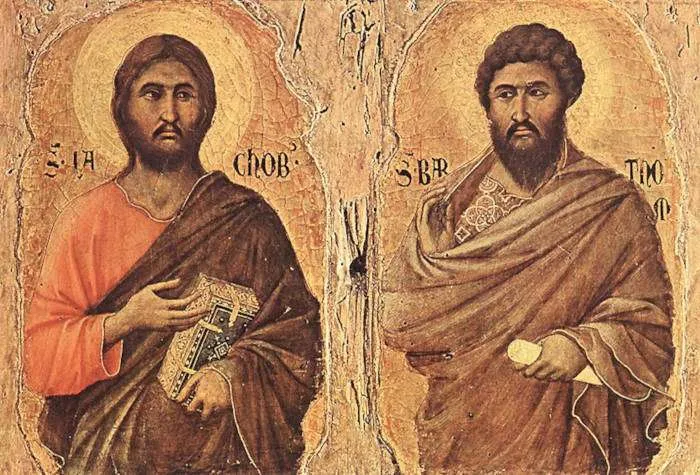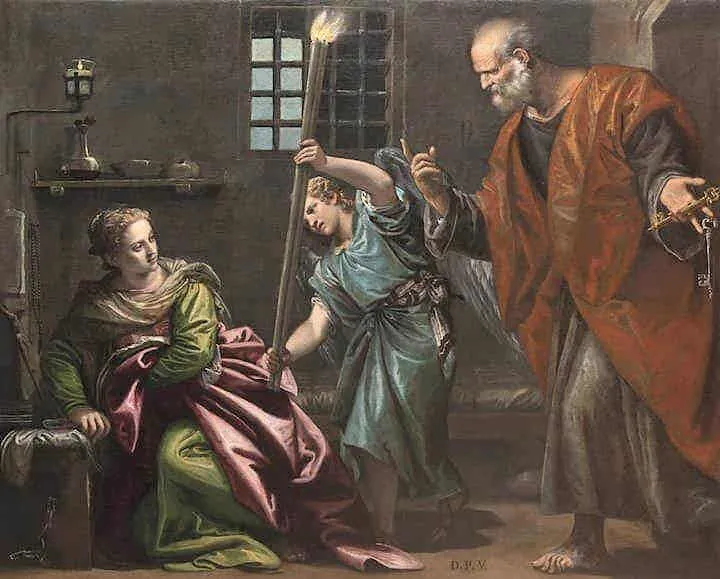1840–1889 Patron Saint of outcasts and those suffering from leprosy; Canonized by Pope Benedict XVI on October 11, 2009
Jozef De Veuster was the youngest of seven children born into a poor farming family in central Belgium. Jozef went to school until the age of thirteen, at which time he had to assist his father on the family farm. A few years later, after his older brother entered religious life, Jozef’s father sent Jozef to college to prepare him to take over the family business. At school, during a mission, he heard God calling him to religious life. At the age of twenty, Jozef followed in his brother’s footsteps and entered the Congregation of the Sacred Hearts of Jesus and Mary. Jozef later took the name Damien after a fourth-century saint who was a physician and martyr. His brother Auguste took the name Pamphile. Two of their sisters also entered religious life.
During his formation, Brother Damien had to work diligently on his studies to catch up to the other students. His older brother tutored him, satisfying the superiors who then permitted him to the priesthood. During those first few years in formation, Brother Damien often prayed before an image of Saint Francis Xavier, seeking his intercession for the grace of being sent on a foreign mission.
In 1863, Brother Damien’s brother, Father Pamphile, received word from his superiors that he was being sent to Hawaii as a missionary. Before Pamphile could leave, he became seriously ill. Brother Damien stepped in and asked for permission to go to Hawaii in his brother’s place. The superiors agreed, and Brother Damien arrived in Honolulu on March 19, 1864, after six months on a ship. Two months later, he was ordained a priest.
At that time in the Kingdom of Hawaii, a serious health crisis was taking place. During the previous century, European explorers and traders brought with them various diseases, such as influenza, smallpox, syphilis, cholera, and whooping cough. It is believed that in the 1830’s, Chinese ships brought the dreaded disease of leprosy to the islands. In response to this growing crisis, on January 1, 1865, the Hawaiian government passed legislation to stop the spread of leprosy. The legislation forced those who contracted leprosy to be sent to a settlement on a remote part of the island of Molokai where they were to live and ultimately die. This law tore families apart and devastated those who became infected. Over the next decade, many who were sent to Molokai fell victim to alcohol abuse and immoral conduct. There was scarcely enough food for them all, and morale was quite low.
In 1873, after being a priest for nine years, Father Damien volunteered to go to the leper colony to meet the spiritual needs of this community of outcasts. Shortly after his arrival, Father Damien sent a letter to the Hawaiian Board of Health, describing the state of the approximately 700 lepers. He wrote that “these wretches, banished from society, live together, without any distinction being made regarding age or gender, and without anyone being classified according to whether their illness is advanced or in its early stages, and all of them, more or less, unknown to each other. They pass all their time playing cards, drinking some kind of rice beer and giving themselves over to various excesses.” His superiors had ordered him not to touch the lepers, not to be touched by them, and not to eat with them. But Father Damien could not obey that command, knowing that Jesus freely touched the lepers. In a letter to his brother, Father Damien said, “As for me, I make myself a leper with the lepers to gain all for Christ. Because of this, when I preach I normally say, ‘We lepers.’”
Over the next fifteen years, Father Damien worked tirelessly as a true father, doctor, construction worker, farmer, gravedigger, and priest. Throughout his ministry to the lepers, he personally dug more than 1,000 graves and built as many coffins for the people he buried, giving them a dignified funeral. For the living, he built hundreds of homes, chapels, roads, hospitals, and even a fresh water system. He taught catechism, celebrated the sacraments, and converted many souls. He regularly visited every person under his care—Catholic, Protestant, and atheist alike. In 1885, he wrote, “During the week I visit my numerous sick and busy myself with orphans, who are all lepers. At times it can be quite unpleasant to be always surrounded by these unfortunate children, but I find consolation in it. They learn their catechism well, and are present daily at morning Mass and the evening rosary.” Father Damien transformed that wretched community into a community of believers, giving them the hope of the Gospel and the dignity they deserved.
It soon became clear that Father Damien’s ministry was not only to those on the island. Many in Europe began to hear about and were inspired by his ministry. Letters he had written home were published in newspapers and as his fame grew, donations poured in to assist with the work. Though many held him up as a modern hero, others criticized him as reckless for touching the lepers and allowing himself to be touched. Even some within the Hawaiian government were critical, given his constant pleas for assistance for his lepers.
After eleven years of ministering to the lepers, Father Damien contracted leprosy himself. He suffered with the disease for five more years, dying during Holy Week in his sixteenth year of ministry on the island. On his deathbed, he announced to his companions that the Lord was calling him to celebrate Easter that year in Heaven. He died with a heart filled with joy.
Throughout history, the Church has always honored martyrs. Those who willingly endured suffering and death rather than renounce their faith give us a powerful witness. Father Damien, though not a martyr by blood, was a martyr of charity. His love for the rejects of society led him to lay his life down for them all, holding nothing back. The result of his heroic sacrifice was the transformation of a disordered society of outcasts into a community of faith and hope.
Ponder your own calling to reach out to those who experience isolation within your community. The poor, sick, mentally ill, and sinner are all in need of God’s mercy. Be open to any way that God may want to use you as an instrument of His limitless charity by pledging to be a martyr of charity yourself.
Source: https://mycatholic.life/saints/saints-of-the-liturgical-year/may-10—saint-damien-de-veuster-of-molokai-priest—usa-optional-memorial/







